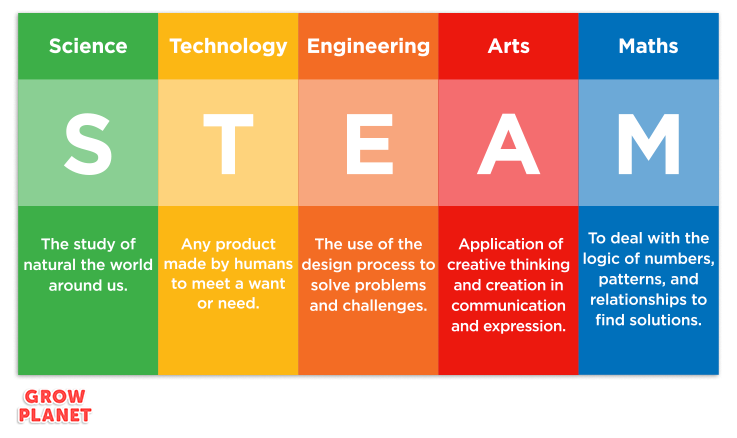STEAM Learning: Bridging the Gap Between Traditional Teaching and 21st-Century Skills
STEAM learning is an interdisciplinary learning approach that combines the subjects of Science, Technology, Engineering, Arts, and Mathematics. This approach emphasizes the integration of these subjects as necessary to solve real-world problems and prepare learners for success in the workforce. According to educational experts, incorporating STEAM into the 21st-century education system is crucial.

STEAM emphasizes hands-on, experiential learning and encourages learners to explore, create, and solve real-life problems. It aims to develop critical thinking, creativity, and problem-solving skills. It is an approach that recognizes that many of the world's most pressing challenges, from climate change to healthcare, require a multidisciplinary approach that draws on a wide range of skills and knowledge.
Science
The Science component of STEAM education involves the study of the natural world and the scientific method. It encompasses fields such as biology, chemistry, and physics.
Technology
This part focuses on the practical application of science knowledge to solve problems, which involves using tools such as computers, software, and other technologies to create and develop new solutions.
Engineering
Its emphasis is on using the design process to solve problems and challenges. It involves the application of scientific and mathematical principles to design and build new products and systems.
The Arts
The Arts component is focused on creativity and expression. It encourages learners to explore their creativity and imagination.
Mathematics
In this part, the focus is on the study of numbers, patterns, and relationships. It is essential for problem-solving, data analysis, and research. Mathematics is the foundation of many other fields, including science, engineering, and technology.
The easy way to implement essential STEAM learning in the classroom
Grow Planet is a game-based learning environment where learners explore, experiment, and solve real-world problems while developing STEAM* skills and knowledge. The subjects are directly linked to real-life situations, creating meaning and engagement and showing that anyone can succeed! The engaging learning environment puts sustainable development at its heart.


